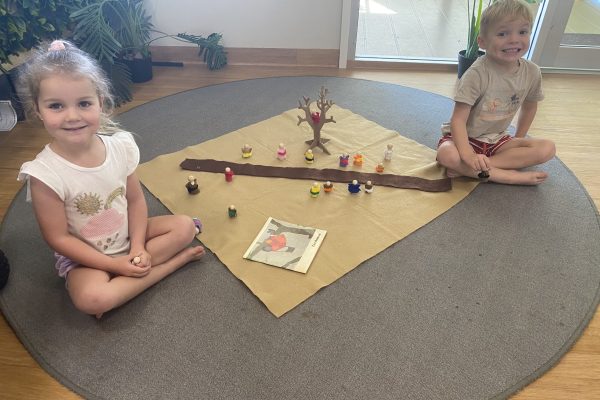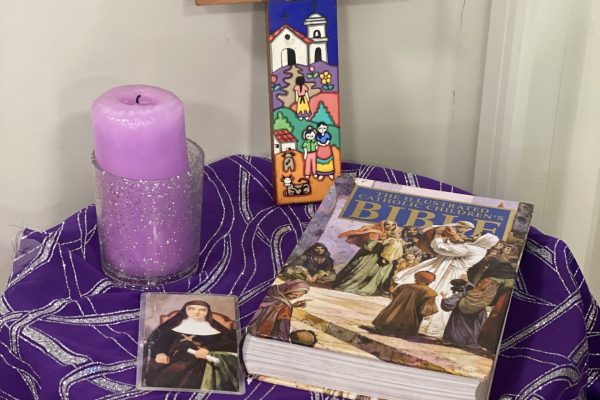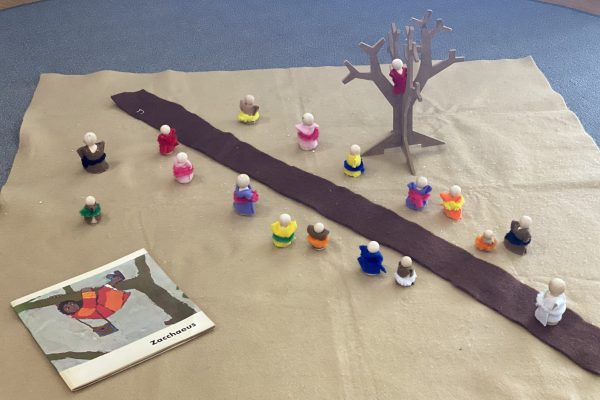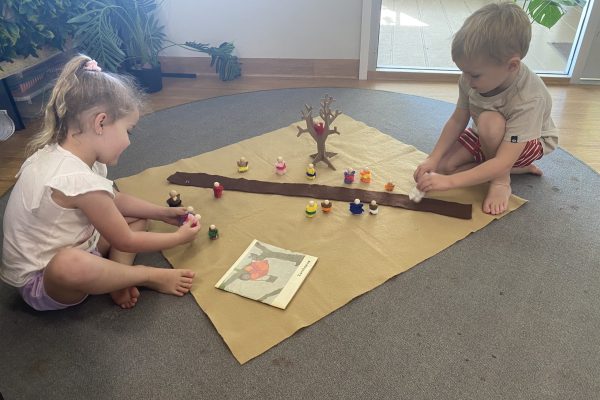During this month, the season of Lent begins. Lent is a period of six weeks (40 days) leading up to the celebration of Easter.
Liturgically, Lent is marked by the colour purple and is a time for penance; for reflection on how to become closer to God and live the gospels more truly. Lent is also a time of reflecting on what might need to change within, in order to become better people.
While traditionally in the Church Lent is a time of repentance and seeking forgiveness for our sins, the important message for children is that the church is getting ready to celebrate Easter. Part of this “getting ready” is for us to think about the things we do and the ways we treat each other, and try harder to be better at these aspects of our lives.
The Early Years Learning Framework (EYLF) notes that children’s learning is dynamic, complex and holistic, with physical, social, emotional, personal, spiritual, creative, cognitive and linguistic aspects of learning all intricately interwoven and interrelated.
By promoting spiritual development, educators are able to create a more peaceful environment while educating children who are prepared to participate in society in positive ways. MMCNQ educators embrace the time of Lent to plan learning opportunities that promote spiritual development within young children. This is achieved in a variety of ways.
Shrove Tuesday
This is the day traditionally when we make pancakes with the children. Educators explain that they are making pancakes to clear out the pantry in preparation for Lent.
Ash Wednesday
For those of you who are familiar with this day and the normal church celebrations, people get the sign of the cross marked on their forehead with ashes on this day. In 2021, the Pope asked that in light of the Covid situation, churches worldwide return to the ancient practice of sprinkling ashes on the heads of the congregation rather than making the sign of the cross on their foreheads.
How can we be good friends?
Throughout Lent, children may experience many planned opportunities of understanding friendships, making friends, being friends and restoring friendships – all of which are key themes in the season of Lent.
The use of story
Educators can use story to focus children’s attention on change, transformation and new life as a way of exploring with children the changes of Jesus’ life throughout this time.
As we celebrate the season of Lent we set aside time for reflection and the sacrifices made.
Through spiritual development MMCNQ believe children can learn to be capable of acknowledging differences and comfortable with qualities such as respect, responsibility and acceptance of themselves and others.










